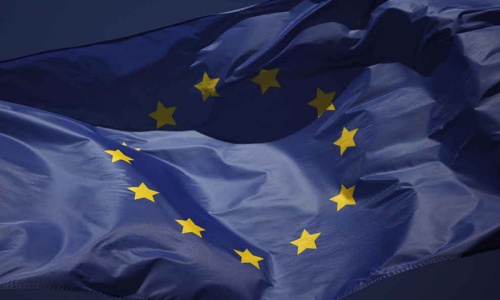ISLAMABAD: The International Trade (INTA) Committee of EU Parliament has extended the Generalised System of Preferences-Plus (GSP-Plus) status for Pakistan, enabling the country to continue to enjoy preferential duties on exports for the next two years.
While the GSP-Plus facility has been available to Pakistan since January 2014, its continuation is an award for Islamabad’s progress in enacting new laws and developing new institutions for implantation of 27 core conventions of GSP-Plus, especially the National Action Plan (NAP) for human rights.
Pakistan’s third biennial assessment report, which was published by the European Commission on Feb 10, was discussed by the INTA on Feb 19 and by the GSP Working Party of the European Council a week later.
The European Commission and External Action Service has recommended at both the forums to continue the GSP-Plus scheme and stated their monitoring priorities for the next biennial monitoring cycle, which are given in the report. There is a clear indication that the EU authorities are satisfied with the results of the third biennial assessment of GSP-Plus and are focused on the next biennial monitoring cycle.
PM’s adviser on commerce thanks EU institutions, asks exporters to capitalise on the opportunity available till 2022
In view of the outcome of the third biennial review of GSP-Plus, the Ministry of Commerce commended the efforts of all ministries and departments of the provincial and federal governments as well as the governments of Azad Jammu and Kashmir and Gilgit-Baltistan that cooperated and formulated laws, developed policies and established institutions to implement the 27 conventions related to GSP-Plus.
An official statement said the commerce division would also like to appreciate the contribution of the office of the attorney general as ‘head of the treaty implementation cell’ for coordinating and steering the process of the implementation of GSP-related conventions.
On behalf of the government of Pakistan, the Ministry of Commerce (MOC) conveyed its gratitude to the European Union for providing this unilateral trade concession to Pakistan. “MOC hopes that the business community will capitalise further on this trade enhancement opportunity,” added the statement.
Taking to Twitter, Adviser to the Prime Minister Razak Dawood thanked the EU institutions for the extension. “This wil strengthen our resolve to continue to improve the social and economic conditions of our people,” the adviser said, asking the business community to “diversify your exports to capitalise on this opportunity to the optimum”.
Pakistan’s first biennial assessment of GSP-Plus was conducted in 2016, followed by another assessment in February 2018, while the third biennial assessment report was published by the European Commission on Feb 10 this year.
On the economic front, Pakistan was a significant beneficiary of the scheme also availed by nine other countries in the world. As a result of the duty-free access available to Pakistan in 27 EU member states, Pakistan’s exports to the EU enhanced from 4.538 billion euros in 2013 (before the GSP-Plus status) to 7.492 billion euros in 2019, registering an increase of 65pc.
In 2018, Pakistan availed tariff concessions on exports worth 5.885 billion euro out of the total export of 6.739bn euros to EU member states.
The main sectors that benefitted from GSP-Plus have been textile and garments, which besides earning foreign exchange for the country, provided employment opportunities, especially to women.
The duty-free access has been crucial for Pakistani products to maintain their edge in the EU market vis-à-vis similar products originating from India, Turkey, Vietnam and China. It grants full removal of tariffs on over 66 per cent of product categories for exports to the EU.
The textile and clothing industry is the biggest beneficiary of the agreement. Before GSP-Plus, textile exports faced between 6.4pc and 12pc customs tariffs while leather goods and footwear faced up to 6pc tariffs.
The exports of textile and leather products also posted growth during the past few months mainly because of its rising exports to the EU.
Commerce Secretary Ahmed Nawaz Sukera told Dawn that Pakistan largely complied to the 27 conventions. “We have almost implemented all conventions in litter and spirit,” the secretary said, adding Pakistan had shown commitment to ratification and reporting obligations to the UN treaties.
Meanwhile, the European Commission will initiate public consultation on the new regulation for GSP in the first quarter of 2020, as the current regulation related to GSP will expire on December 31, 2023.
The new regulation may continue to pursue the same policy objectives of fostering sustainable economic, social and environmental development of beneficiary countries, including respect for good governance and human rights, with the primary goal of eradicating poverty.
As per GSP Regulation, the Commission and European External Action Service (EEAS) has to submit a report to the European Parliament and European Council on the performance of GSP scheme and the status of compliance of GSP beneficiary countries on the 27 international conventions covered under the current Regulation.
As far as implementation of 27 international conventions is concerned, the third biennial assessment report 2018-19 appreciated Pakistan in taking positive steps in the areas of climate change, forestation under billion tree tsunami project, improved vigilance to combat illicit narcotics and wildlife trade, political and administrative reforms to integrate erstwhile Federally Administered Tribal Areas (Fata), social protection initiatives like Ehsaas programme, promotion of Inter-Faith Harmony including the opening of Kartarpur corridor and legislation to ensure rights of women, children and transgender.
However, the report also raised serious concerns on the issues of freedom of expression and shrinking space for the freedom of civil society to operate.
Published in Dawn, March 7th, 2020













































